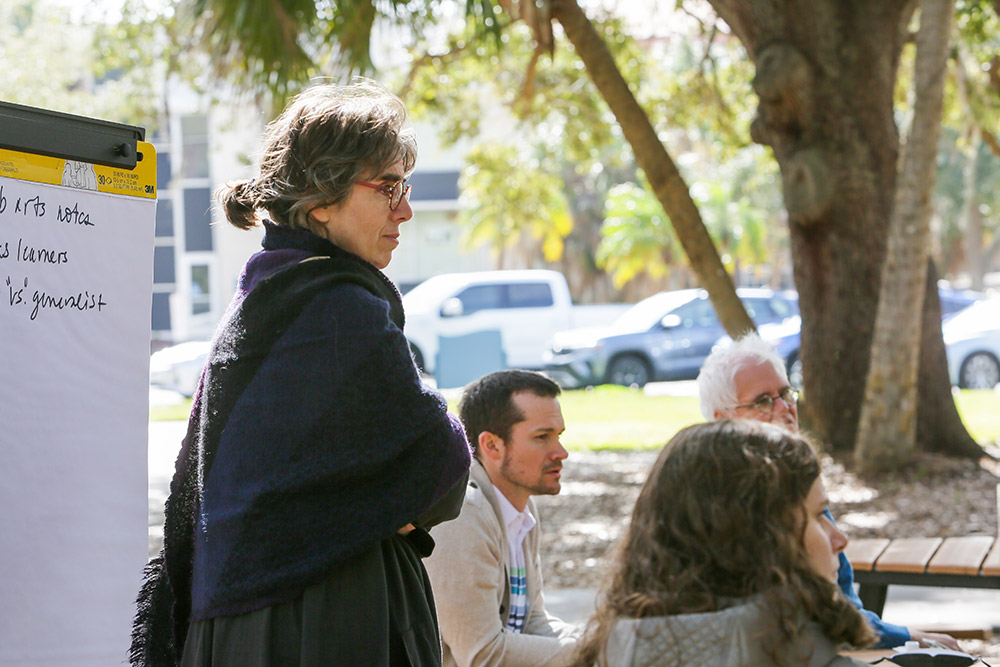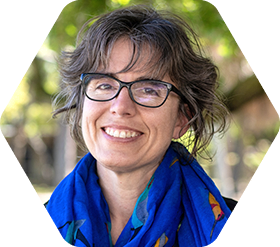
Professor of Religious Studies Davina Lopez will help to analyze Eckerd’s institutional history and its responsiveness to change. Photo: Lisa Presnail
The story of Eckerd College begins in an Orlando church, but the facts, figures and lore already recorded in two tomes about the institution represent only part of its rich history.
With the help of a $39,927 grant from the Council of Independent Colleges’ Network for Vocation in Undergraduate Education (NetVUE), Eckerd Professor of Religious Studies Davina Lopez, Ph.D., and a team of campus researchers and writers plan to fill in the gaps in that portrayal over the next two years.
“The grants ask colleges to look into the histories with an eye toward elements of change, innovation, and specific issues including diversity, equity, inclusion and belonging to tell the institution’s story and [about its] responsiveness to change over time,” says Lopez, chair of Eckerd’s Letters Collegium and director of the College’s Center for Spiritual Life. “Eckerd isn’t a 19th-century college that had to modernize. We were founded on the cusp of the Civil Rights and Peace and Justice movements. So we’re already a different kind of school.”

Davina Lopez, Ph.D.
The NetVUE Reframing the Institutional Saga grant aims to enable institutions to produce an updated account of their history and mission in light of their current context. Lopez has received two other grants from the organization in recent years that were used to help Eckerd faculty explore and strengthen their vocational commitment to teaching in the liberal arts.
“Eckerd College is in the midst of a refoundational moment—connecting our history of innovation and attention to social justice to our future,” says Damián Fernández, Ph.D., president of Eckerd College. “The work funded by Dr. Lopez’s grant is one of the projects that will allow us to identify principles of the founding vision of the College and succeed in implementing the initiatives in our new strategic plan for the benefit of our students.”
Once the research and writing are completed, Lopez says the collection of essays will be compiled into a book for publication. There also will be an on-campus symposium in Fall 2023 to present the results of the archival discoveries and historical interviews.
“Eckerd’s historical commitment to being in South St. Petersburg, and what that means, is something that hasn’t really been deeply explored,” Lopez admits. “This area was chosen. The city has a history with this location. It would be great to excavate some of that. Eckerd is unique; it’s not in a cornfield or the woods. We have to contend with how we got to be where we are.”
Her next step will be to hire student, faculty and staff researchers and writers to begin the work of unearthing people, stories and facts that represent the totality of the vision for Eckerd and how the execution of that has shaped it into the institution as it stands today. Each of the 10 participants will receive a $3,000 stipend and materials allowance. Applicants will be selected by May 1 and begin work in the summer of 2022.












